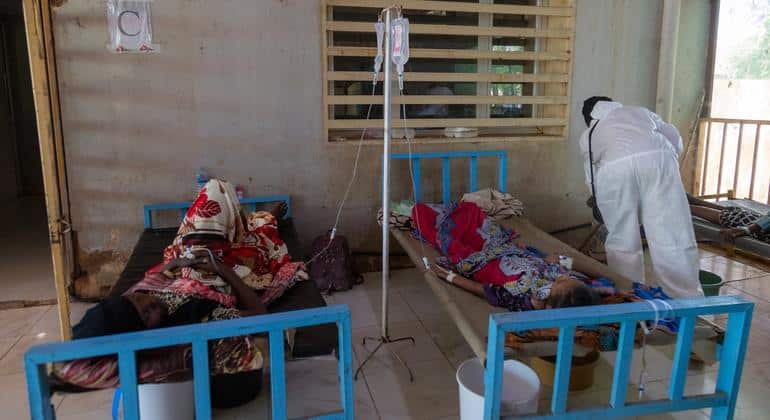Here’s the translation to American English:
—
The cholera outbreak in North Darfur, Sudan, is putting more than 640,000 children at serious risk in a context marked by hunger and forced displacement. UNICEF issued a warning last Sunday about the alarming spread of this disease in the region, where humanitarian teams are facing significant difficulties in reaching the most affected communities due to escalating conflict.
Since the outbreak began, more than 1,180 cholera cases have been reported, nearly 300 of which are children, and at least 20 deaths have been reported in Tawila, a city that has taken in over 500,000 people fleeing violence since April. The figures across the region are even more concerning, with approximately 2,140 cases and 80 deaths recorded by the end of July.
Sheldon Yett, UNICEF’s representative in Sudan, highlighted that cholera is a preventable and treatable disease, but underscored that its rapid spread poses a significant threat to the most vulnerable children. Tawila, located just 70 kilometers from El Fasher, the state capital, has become a critical focal point of this crisis, marked by the bombing of hospitals and the closure of numerous health centers.
The conditions in the area favor the spread of cholera, given the limited access to drinking water, the lack of adequate sanitation solutions, and overcrowding in camps. This health crisis is occurring amidst a broader disaster, as the war between rival factions has dismantled essential infrastructure and displaced millions, in addition to creating a severe food crisis that has led ten localities to declare a state of famine.
Assessments indicate that the number of children under five with severe acute malnutrition has doubled in the past year, increasing their likelihood of contracting cholera. UNICEF emphasized that children whose physical condition has been compromised by hunger are considerably more prone to getting sick and, unfortunately, dying from this disease. The organization made an urgent call for unrestricted humanitarian access, as bureaucratic delays and the looting of aid convoys are limiting the delivery of essential supplies.
In light of this situation, UNICEF has begun to scale up its emergency response in Tawila and other affected areas of Darfur, distributing oral rehydration salts and chlorinated water. Currently, nearly 30,000 people in Tawila have daily access to drinking water, and efforts are being made to raise awareness about cholera prevention and treatment. To address the crisis in the long term, UNICEF plans to supply over 1.4 million doses of oral cholera vaccines and strengthen treatment centers, although access remains a significant challenge.
Since the outbreak was officially declared in August 2024, Sudan has recorded more than 94,000 cholera cases and over 2,370 deaths in 17 of its 18 states. In light of this grave situation, UNICEF has urgently requested $30.6 million to fund its emergency response and continue its crucial work in the region.
—
Let me know if you need any further assistance!
via: MiMub in Spanish










